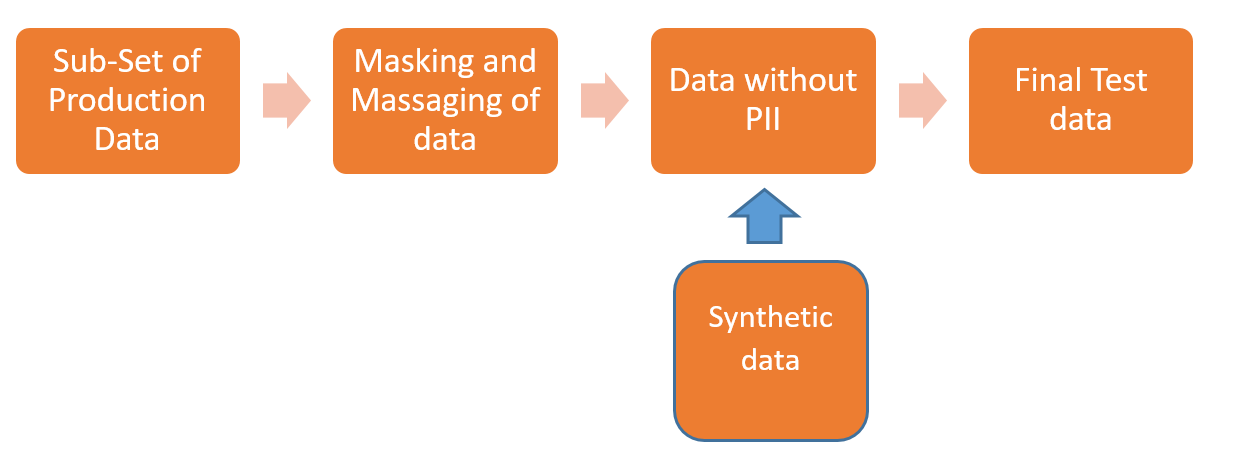Share this Post
Test Data is the key to the success of any digital assurance initiative and usually accounts for 30% of overall efforts on the testing process. The importance of the right test data strategy and management customized to a specific project can’t be undermined. If not used in a proper way, the benefits of the entire assurance cycle are on the downside.
With more and more organizations adopting Agile and DevOps practices, the focus on continuous testing is increasing. The flexible approach to the delivery and deployment process makes it important to have access to relevant test data. If digital assurance is following functional testing, performance testing, model-based testing, using services virtualization, automation testing, or user acceptation testing, defining and managing the right test data can help improve the efficiency of the testing process.
Importance of Test Data Management for the Success of Digital Transformation Programs
The Test Data is the key to the overall digital transformation program. The testing done with obsolete or wrong test data will not provide adequate validation aligned with real world application usage by end users, thereby infusing the probability of application bugs, which might prove detrimental in the future.
For example, an insurance application if not tested with the right test data will have chances of throwing surprises once deployed on live.
Production data, synthetic data or hybrid approach?
Ideally, the application should be tested with real production data to get better validation of the application, but owing to the risk of personal data getting exposed and inviting the bitter side of the law, it is usually not used in test labs. Now, what should be the solution? Should we keep using synthetic data in test labs?
One solution would be to create a test data strategy as to how much and how old production data can be used, with specific guidelines.
Best practices for Test Data Management
Various organizations are at different stages of test data management maturity.
A few best practices for test data management are mentioned below:
- Create test data management strategy for creating, managing and purging test data
- Create role based access control for generation, modification, use and view of the data at various stages of the process
- Devise ways to have maximum reusability of test data
- Create and use accelerators for generating and validating test data
- Establish separate test data support team and enable test data as a service
- Use appropriate test data management tools
- Ensure compliance of data security and data privacy regulations
- Automate test data generation
The challenges of not managing test data properly
The testing process is the consumer of test data for its test cases, analysis and validation. If not properly used wrong selection and management of test data can have the below consequences:
- Longer testing cycles and higher testing costs
- High cost on data storage and maintenance
- Business risk owing to inefficient test process proving inaccurate results
- If using data directly from production, may add security risks
- Additional efforts on debugging
Apart from these challenges, great risk will be on account of the higher probability of application failure in production.
Conclusion
IGT’s state-of-the-art Test Data management practice has been providing test data management and optimization, data governance, and test harness services to our clients across the world.
We can help improve test effectiveness by implementing Test Data CoE, test data strategy, test data assessment process, test data generation, test data simulation, automation of data generation along with data security to protect personal information.
Author:
Yatender has 20+ y ears of experience in software test engineering. As the head of Testing Practice at IGT Solutions, Yatender is actively involved in innovations related to test engineering covering new tools, technologies, and solutions, and enabling IGT’s clients to achieve faster time to market quality improvement, and optimization of developer efforts in overall SDLC. A result-oriented leader, proficient in delivering high customer value and achieving excellence in service delivery management with proven skills in consulting and managing large and complex test programs. When away from work, he enjoys reading on a variety of topics and spending time with kids.
ears of experience in software test engineering. As the head of Testing Practice at IGT Solutions, Yatender is actively involved in innovations related to test engineering covering new tools, technologies, and solutions, and enabling IGT’s clients to achieve faster time to market quality improvement, and optimization of developer efforts in overall SDLC. A result-oriented leader, proficient in delivering high customer value and achieving excellence in service delivery management with proven skills in consulting and managing large and complex test programs. When away from work, he enjoys reading on a variety of topics and spending time with kids.


